Source: Kun-Hung Cheng, Professor and Director of Graduate Institute of Library & Information Science, NCHU Director of Digital Humanities and Information Application Program Director of Continuing Bachelor Program in Digital Humanities and Creative Industries
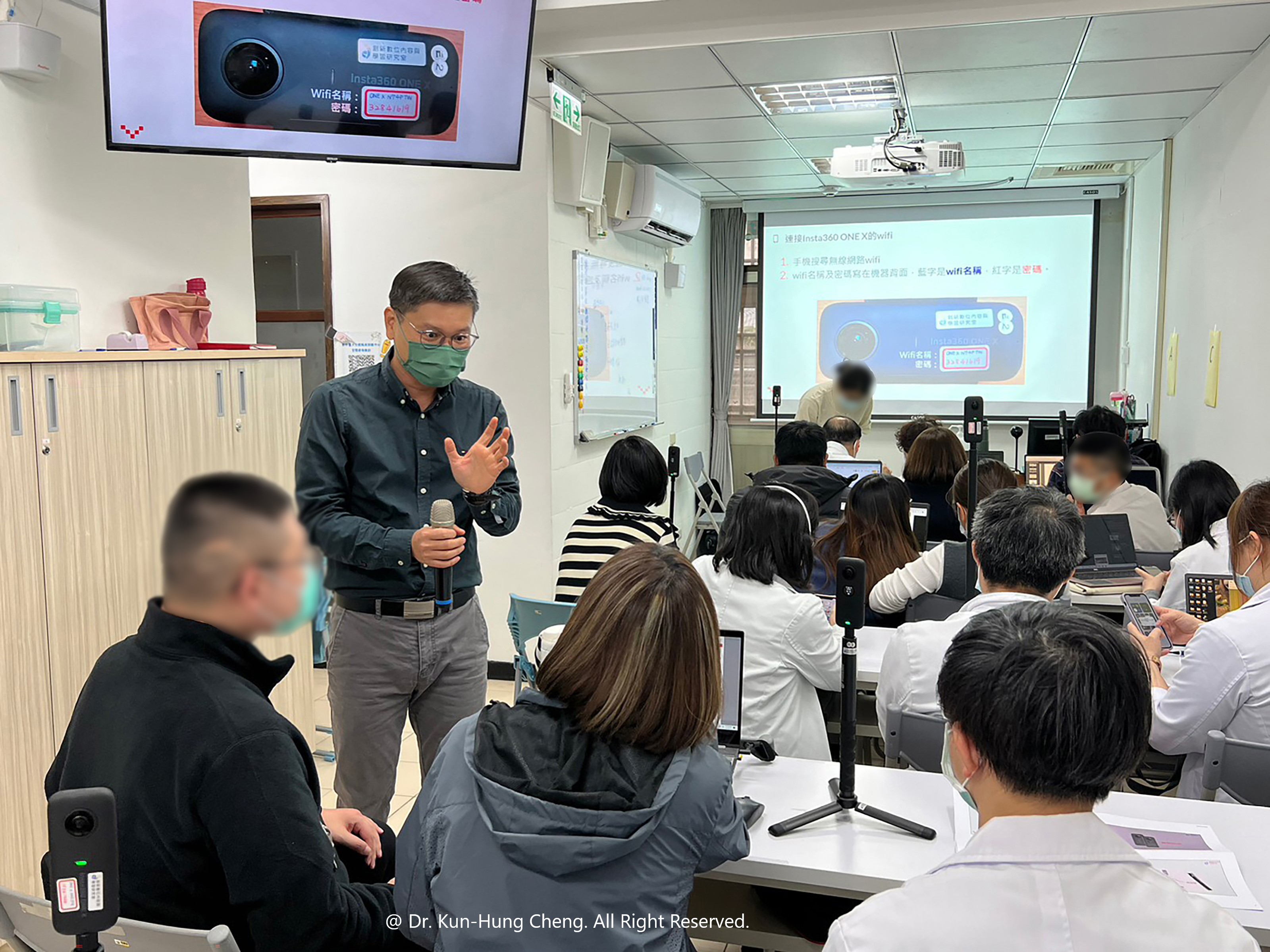
►Dr. Cheng gave a speech for introducing the practice of virtual tour in a workshop
Dr. Kun-Hung Cheng, a professor at National Chung Hsing University (NCHU), has dedicated over a decade to research in technology-enhanced learning, making crucial impacts on international educational research. His impactful work has earned him recognition among the world's top 2% of scientists in 2021, 2022, and 2023. Building on Dr. Cheng’s previous research in Internet-based learning, such as online academic help-seeking and online peer assessment, he has devoted himself to exploring the pedagogical potential of virtual technologies including augmented reality (AR) and virtual reality (VR) since 2013.
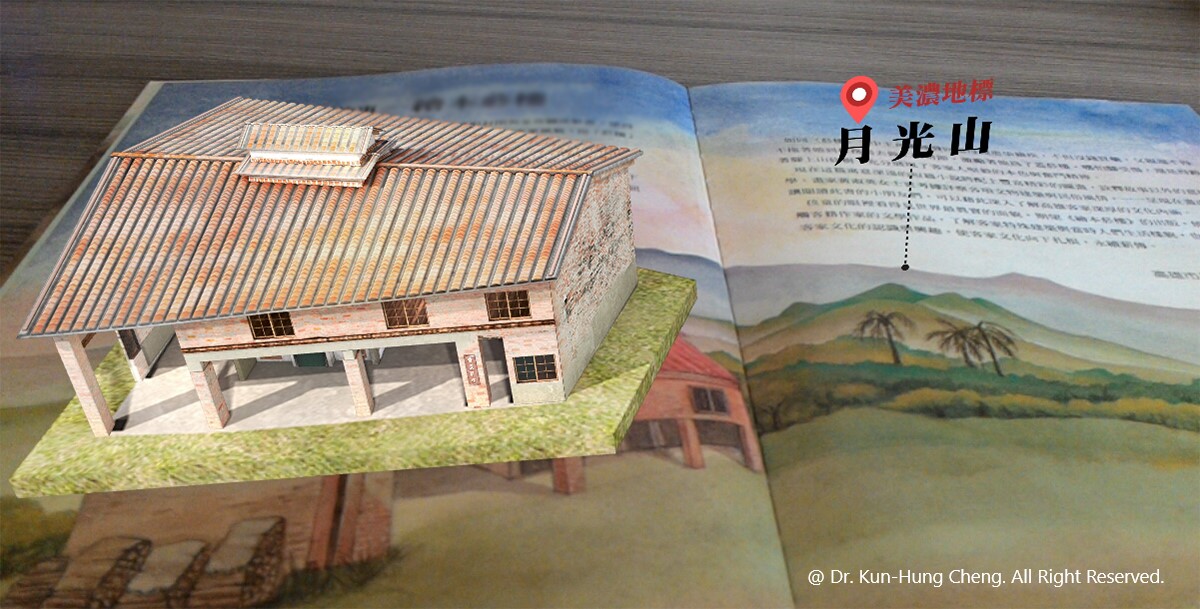
►An AR book system developed by Dr. Cheng for introducing Hakka culture in Taiwan
One of Dr. Cheng’s important studies is his pioneering work in providing an overview of the affordances of AR in science learning and proposing future research directions for AR-based learning. This work has been recognized as a highly cited paper in the Web of Science (WOS) database. Dr. Cheng also paid attention to issues related to reading with the aid of AR technology. Through a series of research studies involving child-parent shared reading using AR picture books, Dr. Cheng explored what children can be cognitively benefited in the learning activity and how children and their parents interact with each other by analyses of behavioral patterns. From parents’ perspectives, Dr. Cheng identified several categories of the parents’ conceptions of and approaches to AR learning with their children through a phenomenographic method. Parents' user experiences of child-parent shared AR book reading were also probed through the lens of parents’ perceptions, expectations, and intentions. Based on these findings, Dr. Cheng proposed a framework for interactive AR book systems to support child-parent shared reading, which serves as a foundation for further research and application in the field of AR-based learning in informal settings. In addition to targeting young learners, Dr. Cheng explored post-secondary students’ perceived cognitive load, motivation, and attitudes when reading an AR book that introduces Hakka culture in Taiwan. This work provided valuable insights for future AR-related studies exploring the interplay between cognitive load and learning performance while considering motivational factors.
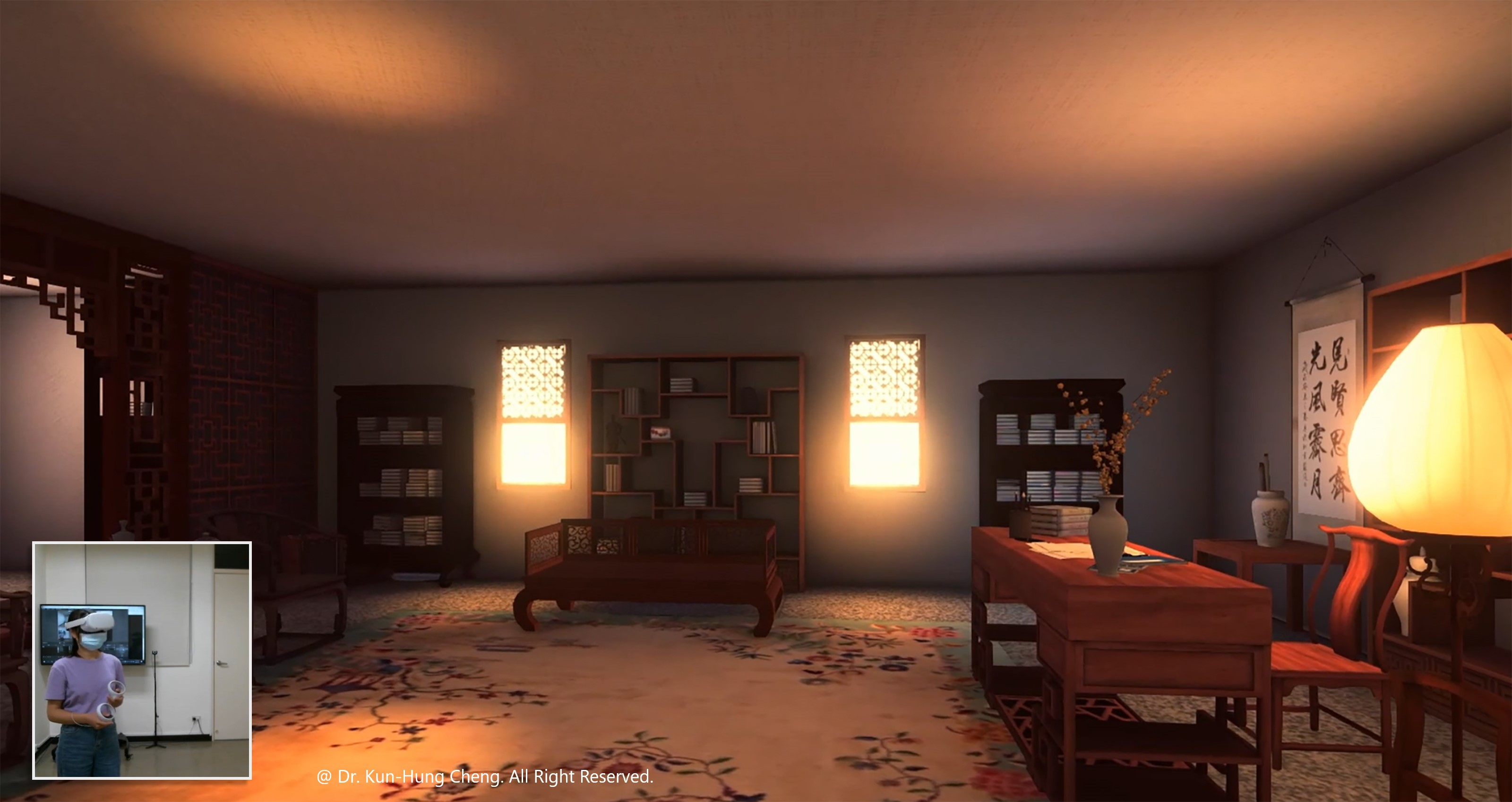
►Demonstration of the virtual scene in an immersive VR application titled “A Letter from Father, 1949” for literary reading
Educational issues regarding learning by immersive VR technology are Dr. Cheng’s recent major research interest. First, he and his colleagues published a review that analyzed the networking structure among VR-supported education research from a citation-based perspective. The research examined the trends and expansion of contemporary VR education studies over the last five years. It introduced an innovative citation-based approach, offering new insights and evidence that shed light on the intellectual structure of VR-supported education, contributing a fresh perspective to the field. Second, to understand how virtual technology could be exploited in the field of primary education, a series of studies were conducted to examine teachers' perceptions, students' learning experience (e.g., motivational beliefs and strategies, perceived immersion, and attitudes), and teacher-student interaction behaviors during immersive virtual field trips for learning.
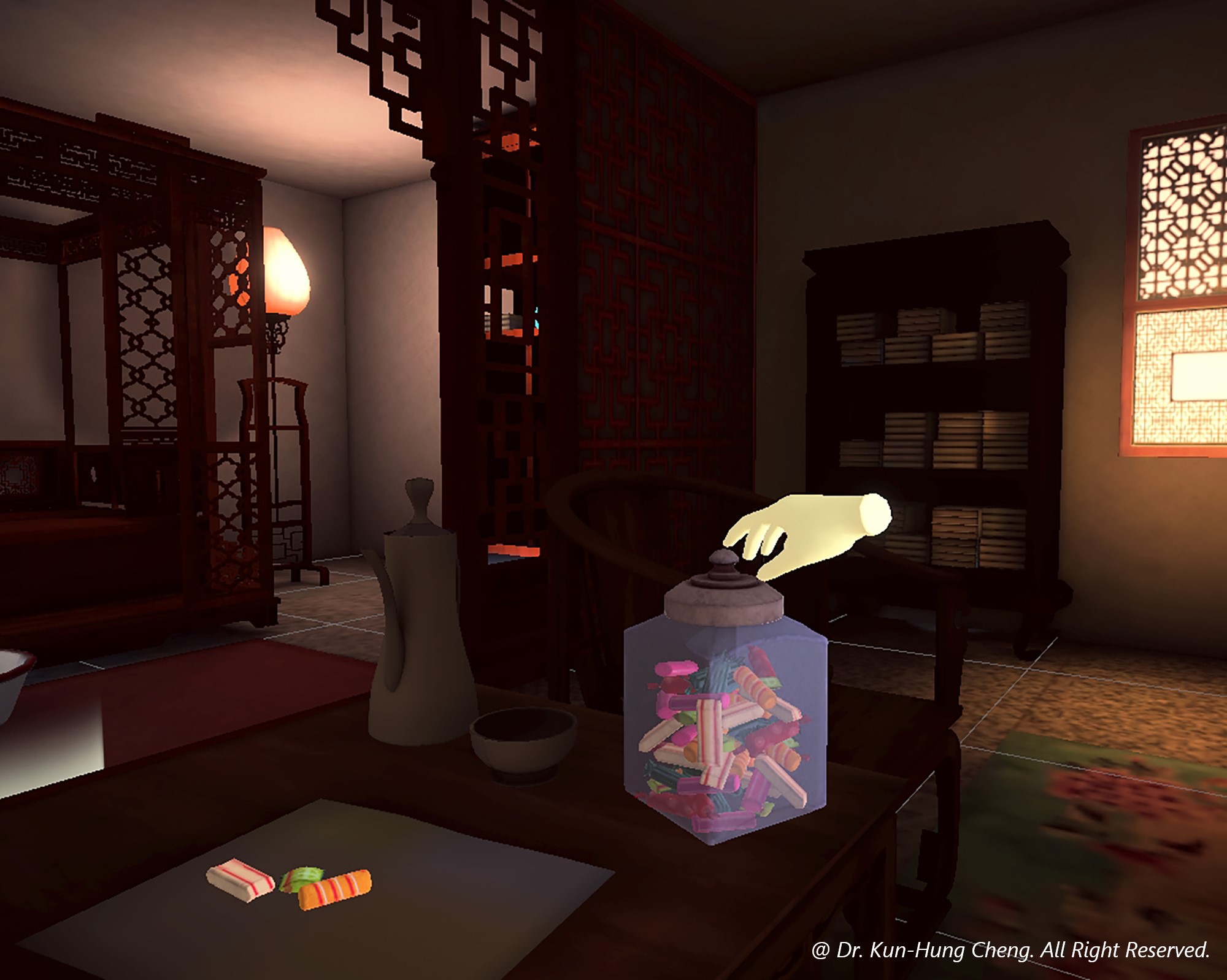
►The interactive virtual elements in the application titled “A letter from father, 1949”
The findings of these studies have contributed to the proposal of instructional strategies designed to effectively guide students in the immersive learning experience of virtual field trips within classrooms. These strategies take into account learners' psychological characteristics and perceived immersion, holding the potential to significantly benefit the future development of immersive virtual field trip learning systems. Thirdly, Dr. Cheng has recently committed to exploring how epistemic curiosity influences learning through immersive VR technology. Apart from investigating the roles of epistemic curiosity and situational interest in students' attitudinal learning within immersive VR environments, he has innovatively proposed an epistemic curiosity-evoking model for designing immersive VR narrative reading in an innovative way. The proposed instructional model was verified and further applied to the development of two immersive VR learning systems with narrative design, namely “A letter from father, 1949” and “The banned book, 1956.” The results of these works were published in the top SSCI journals (e.g., Computers and Education). To further enhance research in the field of VR learning, Dr. Cheng has persistently dedicated efforts to explore the potential of immersive virtual technology for educational purposes.
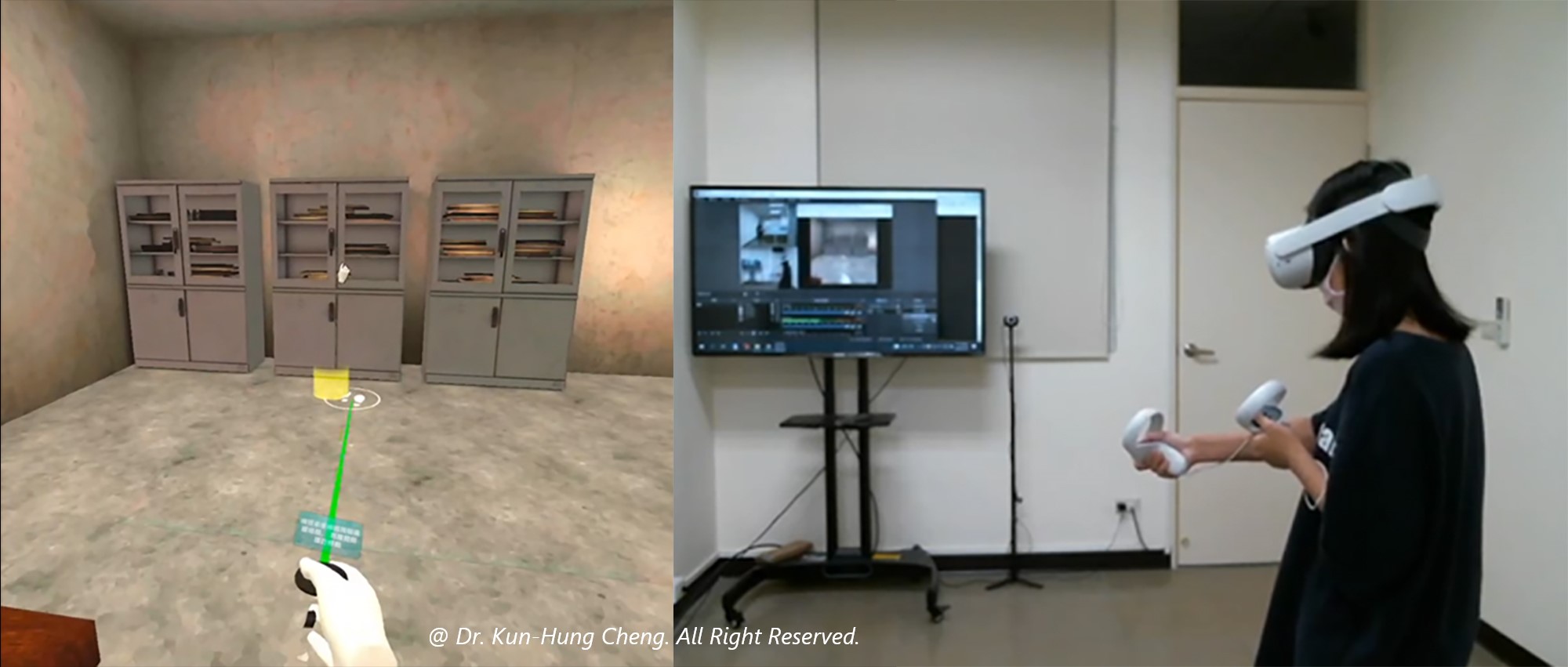
►A learner using an immersive VR application titled “The Banned Book, 1956” for history learning


